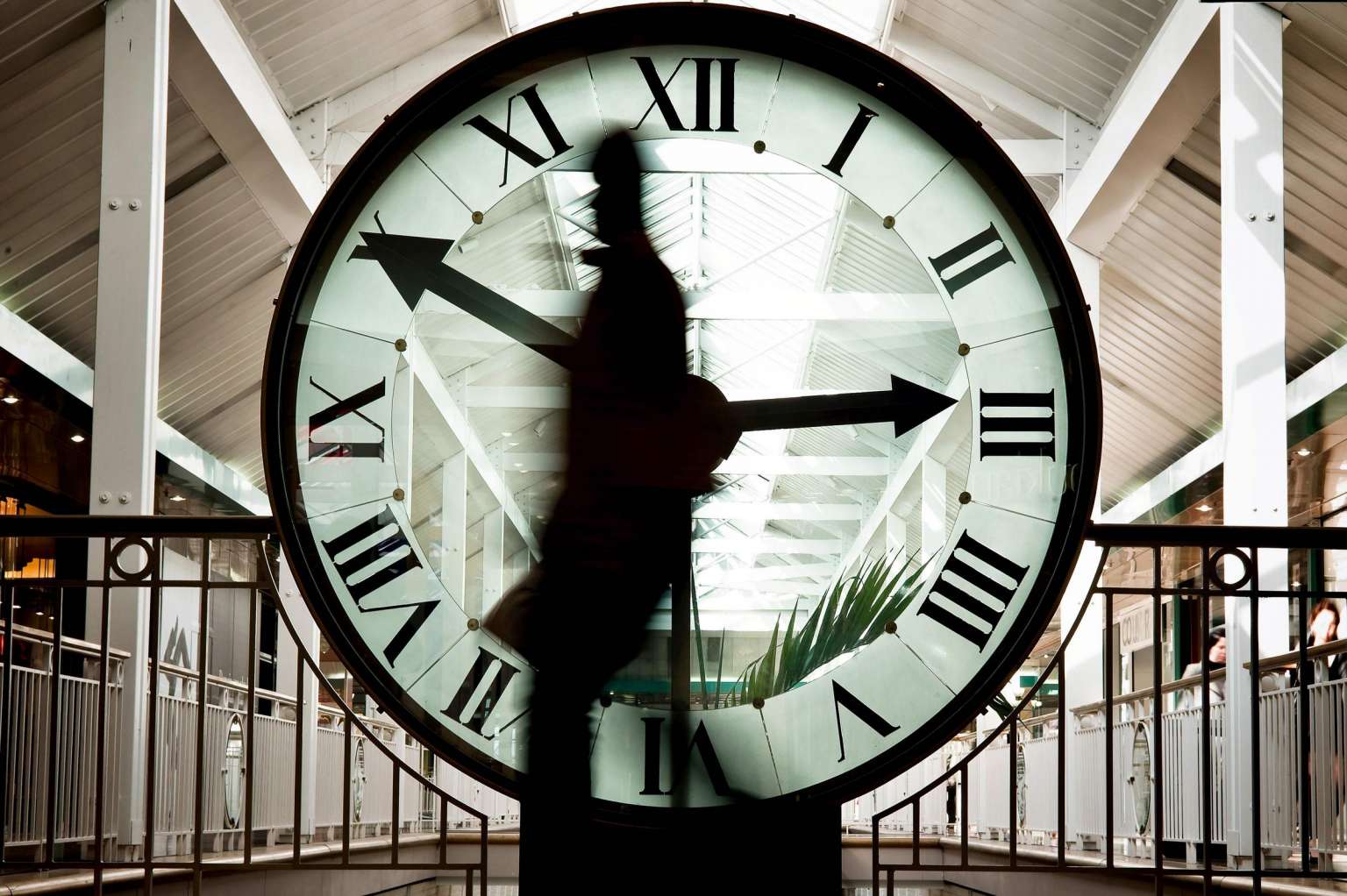Wait a second! Leap second to make 2017 last a second longer
Sign up now: Get ST's newsletters delivered to your inbox

A man passing by a giant clock in Dijon, France.
PHOTO: AFP
Fabian Koh
Follow topic:
SINGAPORE - At 7:59:59am on Jan 1, 2017, the clock will tick to 7:59:60am before it hits 8:00:00am.
This is due to the leap second.
As the planet Earth does not spin at a regular pace, it does not actually complete a rotation every 24 hours. In fact, one rotation takes approximately 24:00:00.01, reported Quartz.
To keep the millennia-long practice of clocking time based on the sun's position in the sky, and simplify the work for astrologers, the world simply adjust our clocks.
Unlike leap days which happen every four years, leap seconds are inserted at a similar precise moment globally.
So countries in or to the west of the UTC 00:00 time zone will get an extra second added to their 2016, while Paris, Moscow, Tokyo and most of those to the east, including Singapore (UTC+08:00), will have their 2017 extended, according to the report.
The upcoming leap second was announced by the International Earth Rotation and Reference Systems Service (IERS), which recommends the addition of leap seconds to international time, reported the Mirror.
First introduced in 1972, there has been 26 instances since then, with the most recent on June 30 last year.
To help computers that cannot process a 61-second minute, Google will create something called "smeared time". This will allow its applications such as Gmail, Youtube and Google Maps, to continue functioning as per normal, according to the Washington Post.
Basically, instead of adding the leap second to its servers, Google will evenly distributes that second over a 20-hour period. Its server clocks will be slightly slower than usual, with each second lasting about 13.9 microseconds longer.

